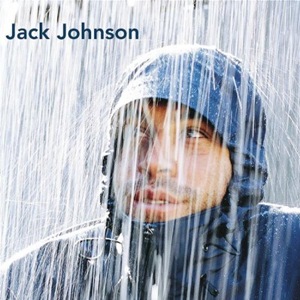I continue to contemplate the Lynda Barry writing workshop, “Writing the Unthinkable.”
Lynda asked us a few times to write in the third-person objective point of view, which means that you refer to a character as “he” or “she” (rather than “I” or “you”) and that you report only what can be known by an objective viewer: no thoughts or feelings can be directly reported as if you, the narrator, were inside the character’s head. This is an extremely tricky way of writing, especially about yourself, and I asked her if there was a reason for it.
She answered that she wanted us to practice viewing characters as we do (or should more often do) in real life – viewing the actions and words without really knowing the others’ thoughts and intentions. We just observe the characters with an open state of mind, and keep ourselves (our Selfs) out of the way. That means not interpreting everything about them through the screen of our own old, familiar story, but being open to whatever clues to what’s really going on arrive. I mentioned how difficult a certain exercise had been to take something we had written about ourselves in the first person (“I”), and rewrite it in this third person objective. All she would say is that it is an important step in moving toward fiction. I said I realized it might help us to ground our stories in the sensory, not just in thoughts and feelings, and she said it would do that, too.
The idea of viewing without assumptions, I said, reminds me of what I try to do in meditation, to simply observe. She said that she, too, meditates, and yes, it is like that. I never learned anything more about her meditation, but I was prompted to think even more about how this approach aligns with the practice.
One little anecdote she told touched on a dilemma I have struggled with as a writer striving to live with mindfulness. She told how one of her nephews had said that if he could engage in time travel, he would want a time machine that works three ways: “past, future, and meanwhile.” We all laughed – yes, our experience in the moment is so often NOT what is happening right now. There’s now, and then there’s meanwhile, back at the ranch – meanwhile, back in fourth grade … meanwhile, back in that argument with your ex-boyfriend when you should have said X.

However, that’s not all that meanwhile is. Meanwhile is where we would all go as we wrote furiously for seven minutes. She began every writing period with “All right. Starting with the words ‘I am,’ you are going to write about your image for seven minutes. And I’ll see you when you get back.” Meanwhile is also where we would go as we listened to someone read their story out loud. Meanwhile is what we experience when we are fully absorbed in a book, or play, or film, or painting. Meanwhile is where we are taken by a great piece of music or dance. Meanwhile is where kids go when they are wholly engaged in play. It’s an essential, important place, and it must have its proper place in Buddhist practice.
It’s helpful to think of what meanwhile isn't, or perhaps what an unwholesome meanwhile might be. Meanwhile might be unwholesome if it takes the form of drifting thoughts, or repeating worries, or scenes that play out again and again in our minds without our looking deeply at them. If we do take the time and energy to invite these thoughts and feelings to come forward, if we embody them and feel them and work to know them, then perhaps our time in that meanwhile becomes wholesome.
I think it may be that in the act of writing, inviting the image from meanwhile to speak and taking down the dictation, we are very present to that image, very present to ourselves, and very present to its, and our, suchness or True Nature. And to be present to all of that is to be present to the now moment.
During the question and answer session at a retreat with Thầy, I heard a woman asked about the wholesomeness of remembering. She said that she has many precious memories that bring her a lot of happiness – is she not to think about those memories anymore, since they aren’t happening in the present moment? Thầy answered that of course we all remember the past, and we should, in order to reflect and understand, and also because it brings joy. Also, we all must plan for the future – we can’t only pay attention to what is happening right now. He said that the key to remembering the past with freedom is to be aware that you are remembering. The key to thinking about the future with freedom is to be aware that you are thinking about the future.
As I reflect on my own experiences with writing, I think it is true that the act of writing moors me, to a certain extent, to the present moment. The writing spools out over time, one chosen word or phrase at a time. I try to hold on to the image or feeling as this time runs by, but the image or feeling changes as that time passes. The image, and the writing, are living things, changing over time. The awareness needed to hold on to all of this is an intense kind of awareness, very open and concentrated at the same time.
I thought that John Daido Loori might have some insights about this, and he did.
In The Zen of Creativity, Daido Loori describes “working samadhi” (concentration), which is a bit different from the “absolute samadhi” that we may experience on the meditation cushion: the kind of single-pointedness of mind in which there is “no observer. There is not awareness of time, self, or other.”
However, we can’t operate a computer or drive a car in this state. We must keep going until this state gradually manifests itself as working samadhi, which means we are able to function in activity but from within a place of stillness, of centeredness.…
In working samadhi there is no effort, no intent. It’s a 360-degree awareness; not so much like the awareness of a hunter, which is very focused and directed, but like the awareness of the hunted – unrestricted.…
…If your art is grounded in the still point, the self will be out of the way and your art will reflect its subject directly. (pp. 58-60)
Getting yourself, your Self, out of the way, is much of what Lynda Barry’s teaching is about.







